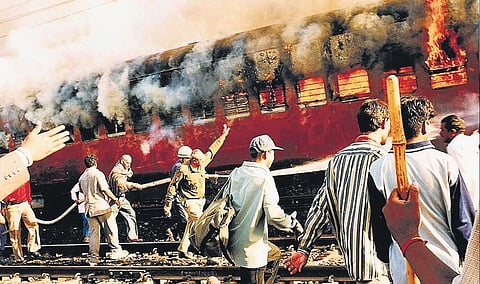

India’s complex socio-political landscape has historically been marred by conflicts. Much has been written about how the strife, over the years, has caused loss of both life and societal unity. Ghazala Wahab did not want to add to that pile, which is why perhaps, in her new collection of essays, she focuses on peace and not war.
The timely book redirects the spotlight on individuals who have dedicated their lives to quelling the deep-seated divides—communal, national, regional—within Indian society. It features essays, both by and about, these ‘peacemakers’—activists, journalists, politicians, leaders and everyday citizens—and celebrates the resilience of the human spirit and the capacity for positive change, even in the face of seemingly insurmountable challenges.
The Peacemakers rightfully opens with Mahatma Gandhi, an icon of non-violence. Rajmohan Gandhi’s essay, Before and After the Partition, provides a moving account of the Mahatma’s efforts to pacify the country in the aftermath of its division, particularly in East Bengal and Bihar, where religious tensions had run amok. His decision to forsake the celebrations of India’s independence in Delhi, and instead tour the violence-ravaged villages, exemplifies his commitment to comforting those most affected by the religious frenzy. Witness accounts such as those of Amir Hussain Sheikh bear testament to the political leader’s transformative influence in bringing Hindus and Muslims closer, demonstrating the profound impact of the Mahatma’s peacemaking endeavours.
Among the more contemporary leaders included in the collection is human rights lawyer-activist, Nandita Haksar. Her essay turns the lens on the Northeast, as she writes about the Naga conflict, marked by decades of living under military rule and the detrimental Armed Forces (Special Powers) Act. Haksar’s pathos-ridden essay underscores her efforts in the region since 1979. During this time, she has worked tirelessly to bridge the gap between mainland India and the Naga people. By advocating on behalf of the latter, she has demonstrated the power of dialogue and empathy in conflict resolution.
Then there’s Rahul Bedi, whose groundbreaking reporting of the 1984 anti-Sikh riots in Delhi’s Trilokpuri is another example of peacemaking through journalism. Decades after the tragic event, the relevance of his writing on the government’s complicity serves as a stark reminder that state-sanctioned tyranny remains an enduring challenge.
Equally eye-opening is civil rights activist Teesta Setalvad’s essay, Gujarat 2002, A Heritage of Humanity. The piece highlights the extraordinary courage displayed by some non-Muslims in protecting their neighbours. She writes about individuals like Dr Nitinbhai B, who risked his job and state loyalty to ensure everybody’s safety, exemplifying the innate human capacity for compassion and solidarity.
In her own essay, Jammu and Kashmir 2004-2019, Wahab reflects on the relatively peaceful years (2004-2008) in Kashmir’s history, when discussions aimed at resolving the conflict between India and Pakistan were in progress. She recollects the palpable hope that the dialogue generated among the people of Kashmir. The essay paints a rare peaceful picture of the Valley, which returned to its volatile state following the 2008 turmoil triggered by a land transfer decision. The piece captures evocatively how the shattered hope plunged the region back into an abyss. In this context, Wahab introduces us to key peacemakers, including Khurram Parvez, Parveena Ahanger and Parvez Imroz, who have been working with various organisations to restore peace in Kashmir.
In its reiteration of the optimistic outlook during the worst of times, the book serves as a convincing reminder that individuals can be catalysts for change, and their actions, big or small, can have a profound impact on society. And Wahab’s mindful curation of the essays ensures that the compedium is representative of the true essence of India—secular, socialist and democratic.
The Peacemakers
By: Ghazala Wahab
Publisher: Aleph
Pages: 280
Price: Rs 799